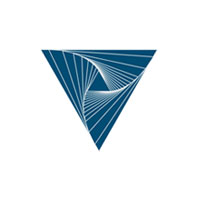The FROSch (Fast and Robust Overlapping Schwarz) library is a framework for parallel overlapping Schwarz solvers in Trilinos. It is designed to be used as an algebraic solver for discrete problems arising from continuum mechanical problems. The framework is part of the Trilinos package ShyLU and it offers a range of functions for the construction and combination of various Schwarz preconditioners.
Currently, one of its main contributions is a parallel implementation of the GDSW (Generalized Dryja Smith Widlund) preconditioner. The GDSW preconditioner is a two-level overlapping Schwarz preconditioner with an energy-minimizing coarse space that is inspired by non-overlapping domain decomposition methods, such as FETI-DP (Finite Element Tearing and Interconnecting Dual Primal) and BDDC (Balancing Domain Decompositions by Constraints). It is robust for a wide class of problems, e.g., solid or fluid mechanics, and can be constructed in an algebraic way. In particular, the coarse space can be constructed from the fully assembled matrix without an additional coarse triangulation, even for irregular subdomains. This facilitates its use as a block-box solver in FROSch. However, the preconditioner can benefit from additional information about the matrix.
The GDSW preconditioner in FROSch has already been sucessfully applied to scalar elliptic problems, linear elasticity, and nonlinear elasticity in fluid-structure interaction applications. Parallel scalability of the implementation has been shown up to a maximum of 64K cores using a direct coarse solver on one core.
FROSch is based on the Trilinos linear algebra package Xpetra and therefore has direct access to the Kokkos kernel package, which allows for using heterogeneous architectures, e.g., new architectures that use accelerators.
The FROSch code is developed jointly with Dr. Alexander Heinlein (principal developer, TU Delft), the group of Prof. Dr. Axel Klawonn (University of Cologne) with Kyrill Ho and Dr. Jascha Knepper, the group of Prof. Dr. Oliver Rheinbach (TU Bergakademie Freiberg), and the ShyLU team at Sandia National Laboratories; see also here.
